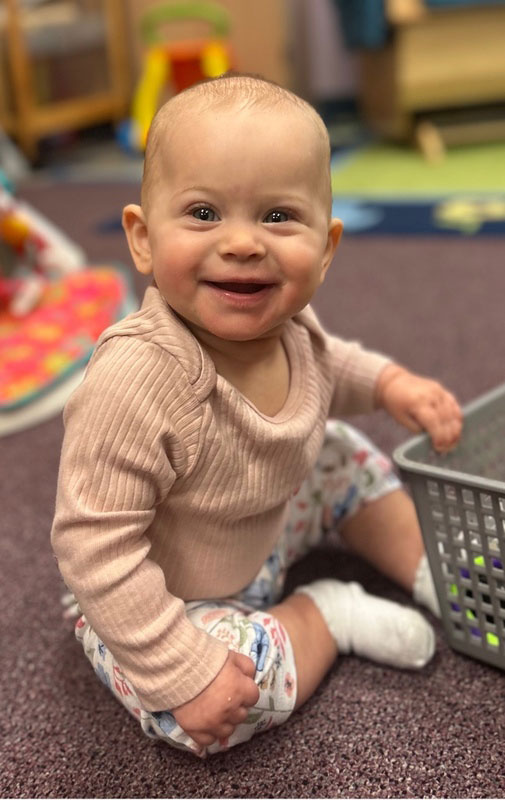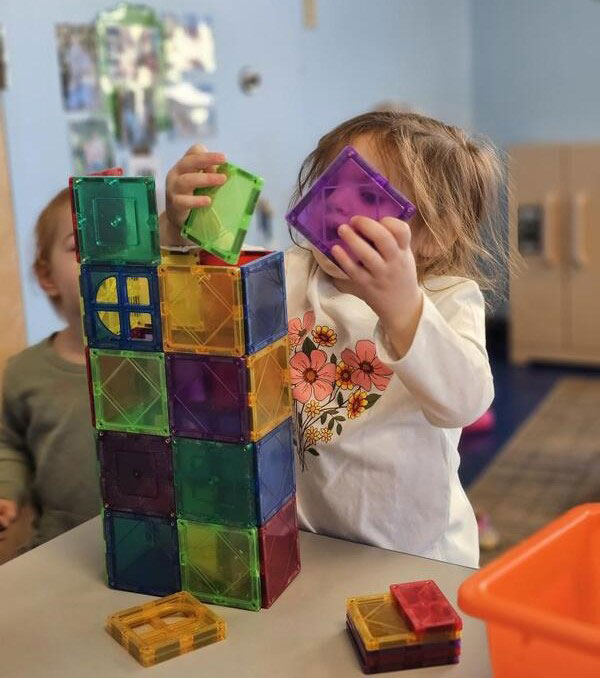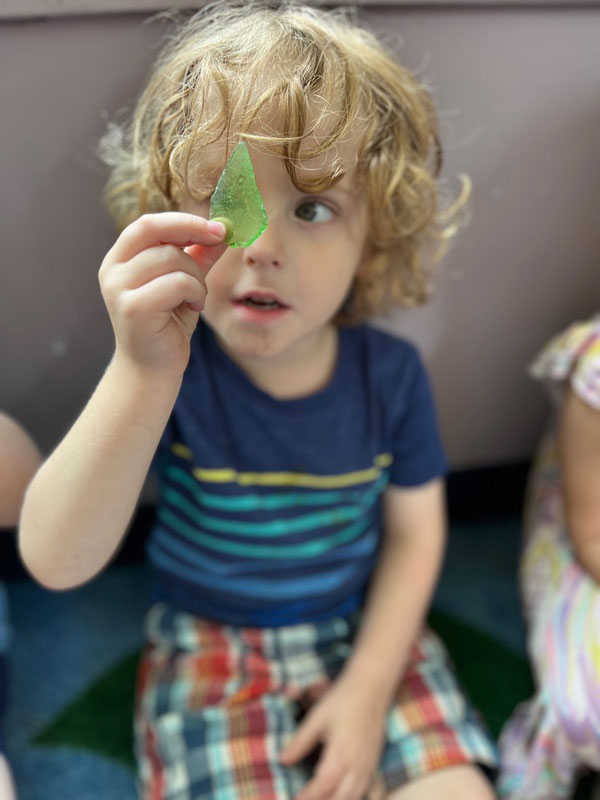
Infants
At Shaloh House, we understand that the transition to the infant room can be a sensitive and emotional time for both children and their caregivers. Our approach is to make the transition as smooth and positive as possible by fostering a nurturing, empathetic environment where both parents and infants feel supported, understood, and respected. Using the Procare app teachers send regular photos and updates on the child’s day including diapers and bottles.
For infants who have never been in group care, we can offer separation routines that allow the child to adjust to being away from home in a calm and supportive way. This may involve shorter visits at first, with increasing time spent in the infant room as the child becomes more comfortable.
Infants thrive on routine and consistency, and we work hard to create a structured environment that mirrors the comforting rhythms of home. Consistent routines for feeding, napping, and playtime provide infants with a sense of security and predictability, helping them adjust more quickly to the infant room.
Reggio for infants
Reggio Emilia encourages a child’s natural curiosity and provides opportunities for infants to explore their environment through sensory experiences. Infants are given safe, age-appropriate materials that stimulate their senses (touch, sight, hearing, etc.), fostering a sense of discovery and excitement.
Toddlers
Our toddler teachers work hard to foster independence and exploration in the classroom. Teachers work to promote a sense of autonomy, curiosity, and self-confidence. Children are encouraged to help with simple tasks such as feeding themselves, cleaning up after activities, and carrying their own items. Morahs provide opportunities for toddlers to take on responsibilities at their own pace while offering support when needed.
Reggio for toddlers
Often toddlers are still developing their preferences and learning how to communicate their ideas. Educators observe children’s interests and curiosities, and then plan activities based on what the children are naturally drawn to. They use open ended provocations and materials to provoke the interest of the child, giving the child a way to explore their own interests while building vocabulary and social skills.


Preschool/Pre-K
Social-emotional development is a cornerstone of early childhood education, especially in preschool and pre-kindergarten years; it lays the foundation for how children understand and manage their emotions, form relationships, and interact with the world around them. This aspect of development is crucial not only for a child’s immediate well-being but also for their success in kindergarten and beyond. Routines such as circle time, group discussions, and partner play help children develop empathy and social skills, as well as conflict resolution and self regulation.
Reggio for Preschool/Pre-k
Reggio emphasizes the importance of asking questions and problem-solving. Children explore topics and concepts deeply, with teachers guiding them to investigate their curiosities. This fosters critical thinking and allows children to build cognitive skills as they make connections between ideas. The beauty of Reggio Emilia is how seamlessly it is able to integrate all educational domains. By focusing on the child’s curiosity, teachers can craft experiences that touch on every developmental area. A single activity might encourage fine motor skills, literacy, math, and science-all while being open ended and inspiring creativity.
